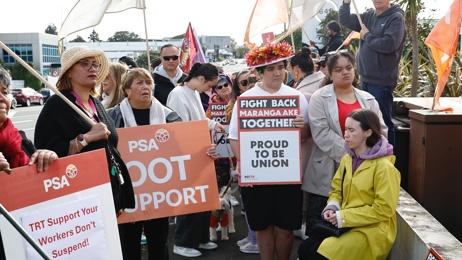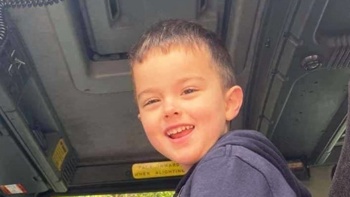
It happens all the time but we hardly ever talk about it. About one in four pregnancies end in miscarriage, leaving many couples struggling with unresolved grief and social isolation. In this 10-part video-based online series, made by Digital Alchemist and funded by NZ On Air, we break down the myths and provide practical help. We hear from well-known NZ personalities - The Hits host and te reo advocate Stacey Morrison, TVNZ presenter and journalist Miriamo Kamo and funeral director Kaiora Tipene from The Casketeers - about their personal experiences and follow the stories of six couples who have been through the trauma of miscarriage.
Going through miscarriage can lead to intense feelings of grief for many people.
"The grief really surprised me, how deep it was," says broadcaster Stacey Morrison.
"It was a different kind of grief I'd never experienced before," agrees bereaved parent Maryam Alavi.
"When I'd see other women with their babies I'd go through different emotions," says Lisa Moa of her miscarriage. "If I got really upset about it I'd just think back to how lucky I am to have one already."
Infertility and pregnancy loss counsellor Megan Downer says that feelings of sadness after miscarriage are normal and understandable. "With any loss we grieve, and there is a range of emotions that go with that grief: passionate sadness, guilt, anger, resentment," she says. "Grief is like a fingerprint - it's very different for everyone."
Downer adds that male partners suffer, too. "I hear often from men that they feel that they have to hold it together for their partners," she says. She encourages men to open up and tell their partners how they feel.
Ceremony and ritual can help those who are struggling with grief. When Noriko Kodera had her miscarriages, she visited her temple and prayed for her lost babies. "Having this ritual helped me emotionally," Kodera says.
The Japanese Jizo ritual ritual, where small figurines are placed in cemeteries and gardens, is one of few that exists to comfort those who have experienced pregnancy loss. Here in New Zealand, many people plant trees to acknowledge their losses.
Making memories and keepsakes can also help bereaved parents, and there are memory making ideas on the Baby Loss NZ website. "There are lots of different things that can really help the families," says Baby Loss NZ general manager Sarah Numan.
Need support?
- If you think you may be having a miscarriage, contact your lead maternity carer - this may be a midwife or your GP. Alternatively, call Healthlinefree on 0800 611 116, or visit your local Urgent Medical Centre or hospital
- Visit the Miscarriage Support websiteor join the Facebook group.
- Visit the Sands website. Sands supports parents and families who have experienced the death of a baby.
- Free call or text 1737to talk to a trained counsellor.
Take your Radio, Podcasts and Music with you









